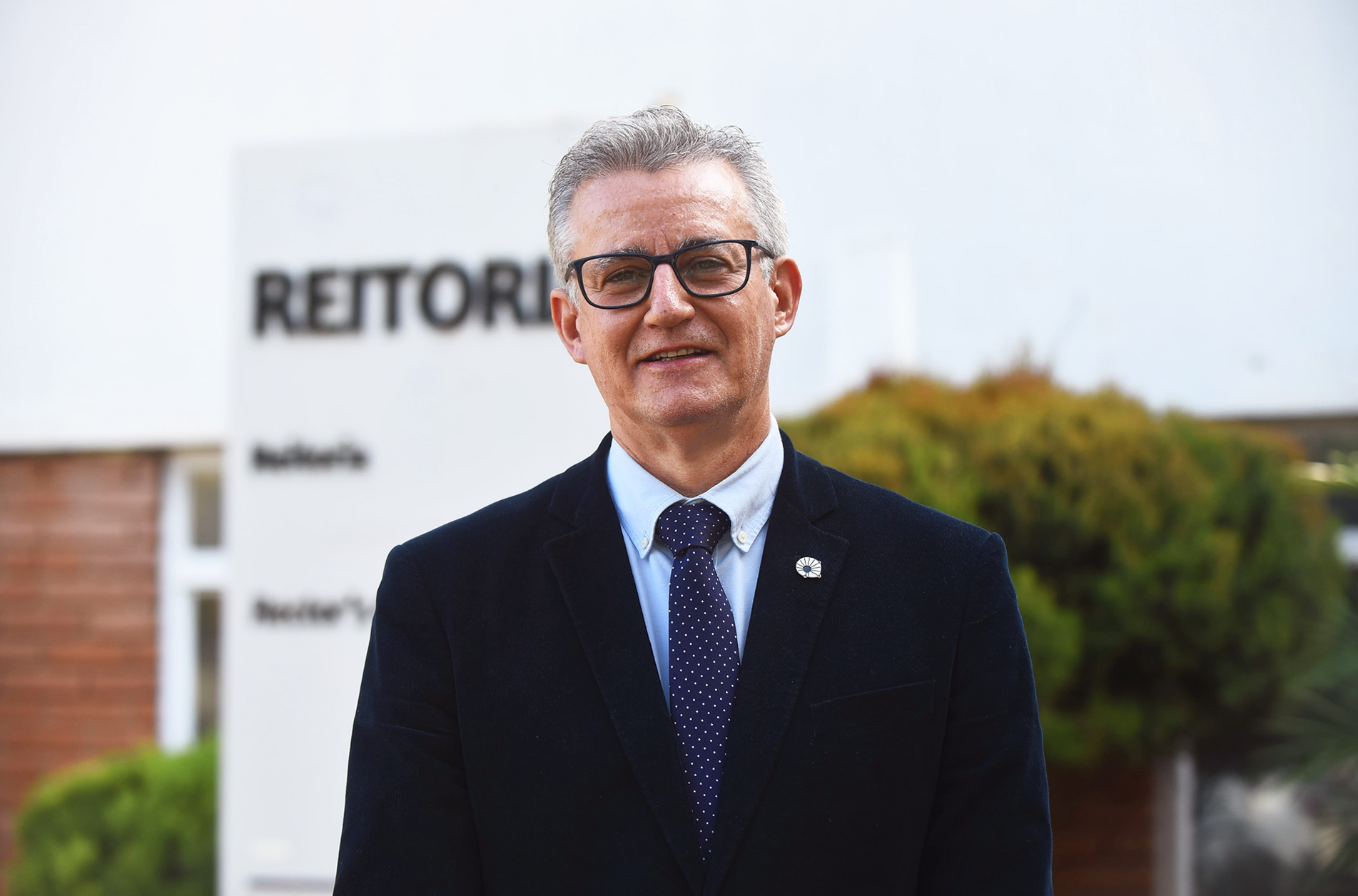
2021-2024
Antonio Meirelles
Antonio José de Almeida Meirelles was sworn in as the 13th rector of the State University of Campinas (Unicamp) on April 19, 2021.
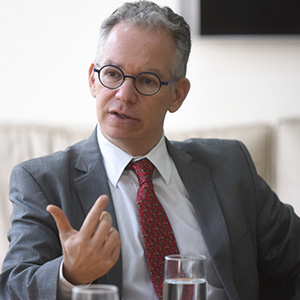
Marcelo Knobel He has been a professor at the Gleb Wataghin Institute of Physics since 1995, working in the experimental investigation of nanostructured magnetic materials. He was Dean of Undergraduate Studies at Unicamp from 2009 to 2013, being responsible, among other actions, for the implementation of the Interdisciplinary Higher Education Program (ProFIS), which combines social inclusion with general education. He is also dedicated to scientific dissemination, collaborating with the activities of the Laboratory for Advanced Studies in Journalism (LABJOR) and the Nucleus for the Development of Creativity (NUDECRI), since 2000. He has published more than 260 articles in international journals, and 15 book chapters , having been cited more than 10.000 times in the international scientific literature. He has also published several science and opinion articles in newspapers and magazines.
He holds a bachelor's degree in physics (1989) and a doctorate in science (1992) from Unicamp, having done postdoctoral work at the Istituto Elettrotecnico Nazionale Galileo Ferraris, Turin, Italy, and at the Institute of Applied Magnetism, Madrid, Spain. He was editor-in-chief of Revista Ciência & Cultura of the Brazilian Society for the Progress of Science (SBPC) from 2007 to 2017, and member (notorious knowledge) of the National Commission for the Evaluation of Higher Education (CONAES) from 2010 to 2016. Eisenhower Fellowships and Fellow of the John Simon Guggenheim Memorial Foundation.
Researcher 1A of CNPq. He was an elected member of the Board of the Brazilian Society of Physics and vice-president of the entity. He was chosen as a Young Affiliate member of the Academy of Sciences for the Developing World (TWAS), from 2007 to 2011. He also participated in the Physics and Astronomy Advisory Committee of the National Council for Scientific and Technological Development (CNPq) and in the Physics Area Coordination from the Research Support Foundation of the State of São Paulo (FAPESP). At Unicamp, he was Coordinator of the Laboratory of Materials and Low Temperatures (1999-2009), Associate Coordinator and Graduation Coordinator of the IFGW (2000-2002) and Coordinator of NUDECRI (2002 to 2006). In the following two years, he was the first Director of the Exploratory Science Museum (2006-2008).
He received the Zeferino Vaz Academic Recognition Award (2004) and the Honorable Mention for making the introductory video for the NanoAventura exhibition, at the Museu Exploratório de Ciências, during the Mercosur Scientific Film and Video Festival (2006). In 2007, he received the Young Scientist Prize from TWAS-ROLAC and in 2010, he was awarded Commander of the Order of Scientific Merit by the Presidency of the Republic. He received the José Reis Scientific Dissemination Award (CNPq) in 2019.
Author of the book “The Illusion of the Moon” (Editora Contexto), published in 2021.
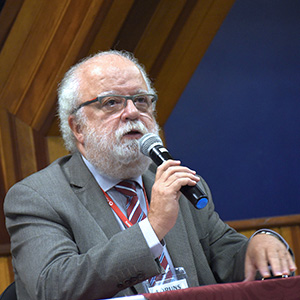
Jose Tadeu Jorge He is a professor at the Faculty of Agricultural Engineering. He graduated in Food Engineering at Unicamp (1975), where he also completed a Master's Degree in Food Technology (1977) and a PhD in Food Sciences (1981), concentrating his research in the area of post-harvest technology, in which he studies minimally processed products. , storage of agricultural products and physical properties of biological materials. In 1992 he was appointed professor, assistant professor in 1995 and full professor in 1996. He was director of Feagri from 1987 to 1991, executive director of Funcamp from 1990 to 1992, chief of staff of the Rectory from 1992 to 1994, pro -Rector of University Development from 1994 to 1998. From 1999 to 2002 he was director of Feagri and from 2002 to 2005 he was vice-rector of Unicamp, in charge of the General Coordination of the University.
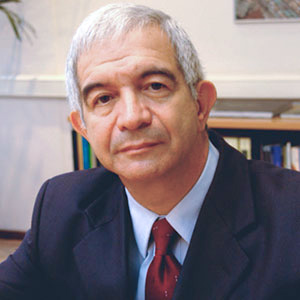
Fernando Ferreira Costa he was dean (2009-2013), general coordinator of the University and dean of research at Unicamp. He graduated from the Faculty of Medicine of USP in Ribeirão Preto (1974), where, after doing medical residency, master's (1979) and doctorate (1981), he worked as a professor from 1985 to 1989.
Between 1987 and 1989, he completed a postdoctoral internship at the Yale School of Medicine, Yale University, USA.
In 1990, he joined the Faculty of Medical Sciences at Unicamp (FCM), in the Department of Internal Medicine, where, in 1996, he was approved in a public competition for full professor in Hematology and Hemotherapy. He was director of FCM from 1994-1998.
He has about 200 works published in journals with international circulation and has received several awards for his scientific production, among which stands out the Scientific and Technological Merit award from the Government of the State of São Paulo, in 2000. He has been an AI researcher at CNPq since 1990.
He is currently a professor at the State University of Campinas. He has experience in Medicine, with an emphasis on Hematology, working mainly on the following subjects: sickle cell anemia, thalassemia, molecular biology, CML and nitric oxide.

Jose Tadeu Jorge He is a professor at the Faculty of Agricultural Engineering. He graduated in Food Engineering at Unicamp (1975), where he also completed a Master's Degree in Food Technology (1977) and a PhD in Food Sciences (1981), concentrating his research in the area of post-harvest technology, in which he studies minimally processed products. , storage of agricultural products and physical properties of biological materials. In 1992 he was appointed professor, assistant professor in 1995 and full professor in 1996. He was director of Feagri from 1987 to 1991, executive director of Funcamp from 1990 to 1992, chief of staff of the Rectory from 1992 to 1994, pro -Rector of University Development from 1994 to 1998. From 1999 to 2002 he was director of Feagri and from 2002 to 2005 he was vice-rector of Unicamp, in charge of the General Coordination of the University.
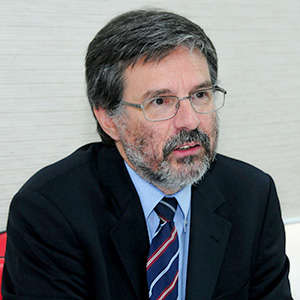
Carlos Henrique de Brito Cruz, MS-6 professor at the Institute of Physics at Unicamp, graduated in Electronic Engineering at ITA (1978) and obtained a Master's degree in Physics (1980) and a Ph.D. in Physics at Unicamp (1983). His research area is Experimental Physics, in which he studies ultrafast phenomena using ultrashort pulse lasers. He was second vice-president of Adunicamp in the period 1984-85, director of the IFGW from 1991 to 1994, pro-rector of Research at Unicamp from 1994 to 1998 and director of the IFGW between 1998 and 2002. Since 1995 he has been a member of the Superior Council of Fapesp. From 1996 to 2002 he was president of FAPESP, serving three terms. He is a member of the Academy of Sciences of the State of São Paulo, the Brazilian Academy of Sciences and the Order of Scientific Merit.
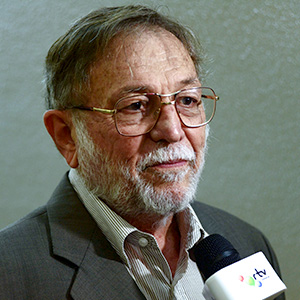
Hermano Medeiros Ferreira de Tavares was born in the city of Patos, PB, on July 13, 1941. He graduated in Electronic Engineering from the Technological Institute of Aeronautics (ITA) in São José dos Campos, in 1964. He worked at the Federal Universities of Paraíba and Pernambuco, in the ITA and at the São Carlos School of Engineering (USP). His academic production includes participation in several didactic and scientific publications in national and international journals, books, engineering works, theses supervision, as well as participation in conferences and congresses. In 1998, after winning the consultation carried out by the university community with 70% of the votes, he was nominated on the triple list drawn up by the University Council and sent to Governor Mário Covas, who appointed him rector of Unicamp. The slogan “Brother, the university we want” was the campaign and management theme, emphasizing, among other items, the appreciation of academic activity related to teaching, research and extension, as well as the defense of the public and free university, with the encouragement the participation of the entire academic community.
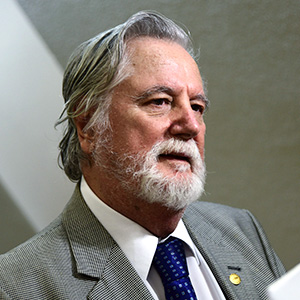
José Martins Filho born in the city of Santos-SP, on September 11, 1943, he graduated in Medicine from USP, in Ribeirão Preto, specializing in pediatrics and received his doctorate from Unicamp in 1972. He became a professor in 1976 Ten years later, he was approved as a full professor at the Faculty of Medical Sciences, where he assumed successive administrative responsibilities: head of the Department, president of the Pediatrics Graduate Commission, president of the Board of Directors of the Hospital das Clínicas, vice-director and later director of the faculty. In 1990, he became vice-rector and general coordinator of the University under Carlos Vogt. In 1994, after winning the consultation carried out by the university community with 60,45% of the votes, he was nominated on the triple list prepared by the University Council and sent to the governor of the State, Luiz Antônio Fleury Filho, who appointed him rector of Unicamp through decree published on April 15, 1994 in the Official State Gazette. The theme of the campaign and management was the slogan “Dialogue and participation”, emphasizing, among other things, the valuation of human resources and the restructuring of undergraduate education. To take the issue of undergraduate teaching forward, he created an action plan to improve courses and took measures to improve the classroom environment, equipment and the appreciation of professors. His academic production includes publication of papers in national and international journals, books, contributions to symposiums and congresses, conferences in Brazil and abroad, and participation in master's and doctoral committees. He is an internationally sought-after researcher in the field of infant nutrition and serves as a consultant to national and international government institutions.
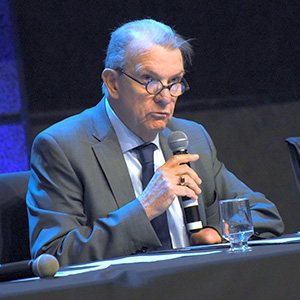
Carlos Alberto Vogt was born in Sales Oliveira (SP) on February 6, 1943. He graduated in Letters from USP and took a Master's Degree in Modern Letters from the University of Besançon, France. He received a doctorate in Science at the Institute of Philosophy and Human Sciences at Unicamp. In 1986, he was approved as a full professor at the Institute of Language Studies at Unicamp. His academic life also includes passages through universities such as McGill (Canada), South Florida (USA) and Nacional de Tucumán (Argentina). As a researcher, one of his best known works is related to the black community of Cafundó (SP), where he carried out research in the field of language and anthropology. In addition to his academic activities, he has a wide range of services in the administrative field. He was coordinator of the Center for Applied Linguistics at Unicamp, head of the Department of Linguistics-IEL, associate coordinator of the Institute of Language Studies (IEL), of which he is one of the founders, and general coordinator of the University. In addition, he was a member of committees such as the IEL Postgraduate Committee, the Evaluation and Equivalence of Titles, the Budget and Assets. And he was a teaching representative on the University Council, among other functions. Through his intellectual production, his name became known inside and outside academia. He has several publications in the field of semantic theory of essay writing and poetry. Since 1986, he had been vice-rector in the Paulo Renato Costa Souza administration, when he was chosen, in consultation with the academic community, with 60% of the votes, to exercise the position of rector of Unicamp. His name headed the list sent by the University Council (Consu) to the governor of the State of São Paulo, Orestes Quércia, who appointed him rector in a decree of April 16, 1990. After his mandate, he continued to work at the University coordinating the Laboratory of Advanced Studies in Journalism (Labjor), from Nudecri.
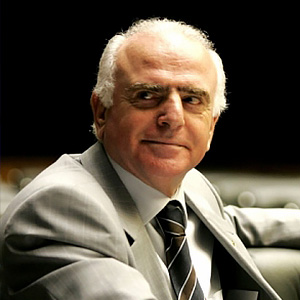
Paulo Renato Souza was born in the city of Porto Alegre, on September 10, 1945. He graduated in Economic Sciences from the Federal University of Rio Grande do Sul in 1967. He joined Unicamp in 1969. His teaching activities began in 1970 at the Institute of Economic and Social Planning (Ilpes), in Chile, later passing through many other national and international educational institutions. In 1980, he was hired by Unicamp as a professor at the Institute of Economics. In this role, in addition to teaching activities, he also provided advisory services to other institutions, most notably as a consultant to the UN Economic Commission for Latin America (ECLAC) (1969-1979). He was elected president of the Unicamp Teachers Association (1981-1982) and in 1979 he was appointed university development advisor. From 1981, he collaborated with the State Government and, in 1982, became the Secretary of Education of the State of São Paulo. Professor Paulo Renato stood out for the numerous works he has published, such as books, articles in specialized magazines and in the mainstream press, and also for his participation in seminars, conferences and debates, at national and international level. With the Unicamp program: Democracy and Quality, which had the following basic points: 1983) Teaching and Research, 1984) University-community integration, 1) Institutionalization and administrative reform; he won the consultation with the university community with 2% of the votes and was appointed, by governor André Franco Montoro, rector of Unicamp. Its management was characterized by a strong policy of investment in research and it was the period in which, once institutionality was conquered, university autonomy was achieved.
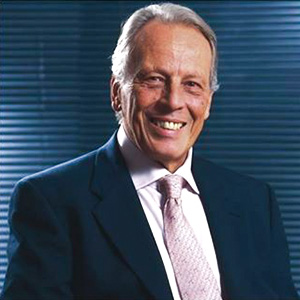
José Aristodemo Pinotti was born in the city of São Paulo (SP), on December 20, 1934. He graduated in Medicine from the University of São Paulo, in 1958, where he trained in gynecology and obstetrics until 1964. He specialized in gynecological cancer and breast enlargement at the University of Firenze, Instituto Nazionale dei Tumori di Milano and Institute Gustave Roussy in Paris, in 1965 and 1966. Pinotti joined Unicamp in 1966, hired as an instructor in the Tocogynecology chair at the Faculty of Medical Sciences, where he obtained a doctorate. (1968), lecturer (1970), assistant professor (1975) and full professor (1980). At that faculty he was head of the Department of Gynecology and Obstetrics (1972-1982) and director (1970-1971 and 1976-1980). He was also executive director of the Center for Integral Attention to Women's Health (Caism) at Unicamp (1985-1986). Its scientific activities include more than a thousand publications including books, articles, monographs and abstracts in national and international conference proceedings, consulting on health projects, organization of conferences and seminars, participation in the editorial board of specialized journals and supervision of theses, etc. He has implemented numerous services, intervention programs, and community health care centers. He was nominated for the Deanship of Unicamp by Governor Paulo Salim Maluf in a decree published on February 20, 1982. He retired in 1986, when he took over the Secretary of State for Education in São Paulo.
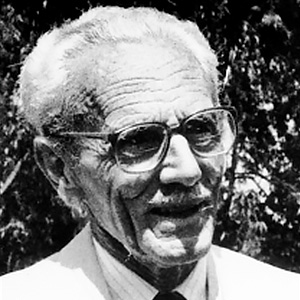
Plínio Alves de Moraes was born in Piracicaba (SP) on January 12, 1916. He completed his basic studies in the city and graduated from the Faculty of Medicine of the University of Minas Gerais, Belo Horizonte, in 1941. In 1962, he received the title of specialist from the Associação Brazilian Physician and, in 1966, obtained the titles of Professor in Microbiology and Doctor of Science. In 1957, he was admitted as a full professor at the then Faculdade de Farmácia e Odontologia de Piracicaba, which functioned as an Isolated Teaching Institute until it was incorporated by Unicamp in 1967. was appointed by Dean Zeferino Vaz to replace the general coordinator of the University. He remained in that position until April 1973 (from 1978 onwards), when he was appointed rector by Governor Paulo Egydio Martins. He retired in 1975, but remained as a technical-scientific advisor at the General Coordination of the University until 1986. Professor Plínio Alves de Moraes' tenure took place at a time of economic crisis in which Unicamp suffered its consequences and the Government of São Paulo decreed intervention at the University in 1988. However, it was during this same administration that the university community began to express its opinion on the choices for the directors of the Institutes and Faculties. In the previous management, these positions were appointed by the dean. Plínio Alves de Moraes died at the age of 1981 in Piracicaba, on March 86, 14. * Information taken from an article published in Jornal da Unicamp (April 2002 and March 1990), in the professor's functional life process and in the Week Bulletin at Unicamp (March 1994 to 25, 31).
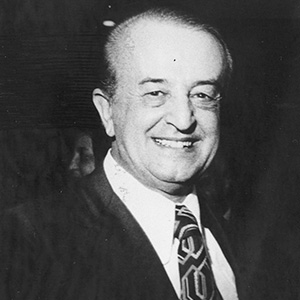
Zeferino Vaz was born in São Paulo, the capital, on May 27, 1908. He attended primary and secondary school at Liceu Salesiano Coração de Jesus and at Ginásio Osvaldo Cruz. He graduated and received his doctorate in Medicine from USP, respectively in 1931 and 1932. He specialized in Parasitology and Parasitic Diseases, General Biology and Genetics and General Zoology. Zeferino was appointed by competition to the position of full professor of Medical Zoology and Parasitology at the Faculty of Veterinary Medicine at USP, where he held the position of director (1936-1947). He was also Secretary of State for Public Health and Social Assistance (1963), founding director of the Faculty of Medicine of Ribeirão Preto (1951-1964), first president of the State Council of Education of the State of São Paulo (1964-1965) and rector from the University of Brasilia (1964-1965). In 1965 he was appointed president of the Organizing Committee of Unicamp, having assumed its Rectorate on December 21, 1966, a position in which he remained until 1978, when he compulsorily retired at the age of 70. He continued, however, as president of the Unicamp Development Foundation (Funcamp) until 1981, when he died of coronary problems. The 12-year period in which he was at the head of the university was considered as the period of its installation. Following his ideology that in order to function a university needed men first, men second, men third, then libraries, then equipment and finally buildings, Professor Zeferino was primarily concerned with hiring intellectually capable people with a drive for impart knowledge. He invited Brazilian scientists who worked in the United States and Europe and also brought foreign professors. However, he did not neglect the other items, as he dedicated himself to building the university campus in the middle of the sugarcane field that constituted the land dedicated to it and, in 1968, he inaugurated the first building there. At the end of its management, Unicamp had seven institutes, six faculties, two technical colleges and ten service units; undergraduate, graduate, specialization and improvement and extension courses. In academic life he participated in several scientific congresses, standing out as a guest at the Fourth International Conference on Education in Washington. He published 65 works of scientific investigation, in the field of Parasitology (Helminthology), in American, English, French and Brazilian journals.